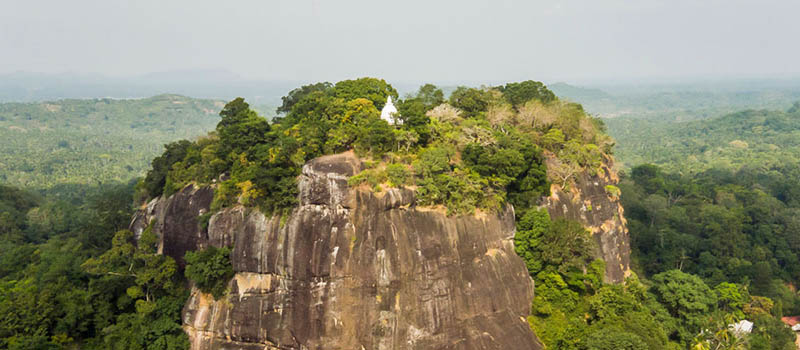
Place Overview
Mulkirigala Raja Maha Vihara is an ancient Buddhist temple in Mulkirigala, Sri Lanka. It has been built on a 205 m (673 ft) high natural rock, surrounded with another four rocks known as Benagala, Kondagala, Bisogala and Seelawathiegala. The temple site is located about 2 km (1.2 mi) from the Mulkirigala junction and can be reached from either Dikwella or Tangalle towns. The temple has been formally recognised by the Government as an archaeological site in Sri Lanka.
Amazing rock cave temples with wall to wall (and ceiling) frescoes and statues. This is an interesting site where the local guides are very friendly. The kiosk is often manned by a man suffering from albinism and you may be asked if you know of a cure. There isn’t one. However, sunglasses are a great help as they suffer from sun damage to the eyes and sun cream is an obvious help as well. You may need to explain this to the guide and the sufferer if you decide to make such a donation.
Ready to Explore?
Plan your visit to this beautiful place and discover the wonders of Sri Lanka.